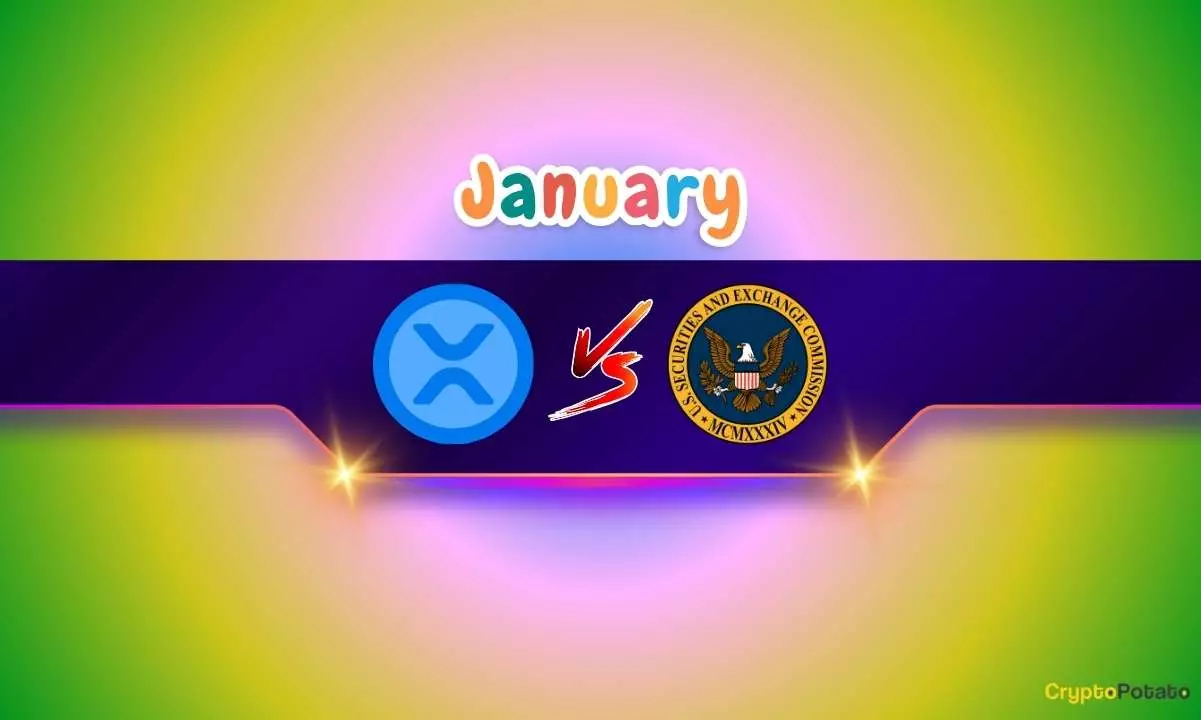The saga between Ripple Labs Inc. and the U.S. Securities and Exchange Commission (SEC) has been nothing short of tumultuous since its inception in 2020. As the SEC recently intensified its appeal following a favorable ruling for Ripple in August 2023, the potential implications extend beyond the immediate parties involved. The involvement of various stakeholders, coupled with leadership changes at the SEC, has created an intricate web of developments that merit close examination. Central to this ongoing litigation is the classification of Ripple’s native token, XRP, and whether it should be labeled as a security—a designation that could have extensive ramifications for the broader cryptocurrency market.
In mid-January 2024, the SEC initiated its appeal against the August ruling by Judge Torres, who determined that Ripple’s programmatic sales of XRP on centralized exchanges did not infringe on securities laws. This appeal underscores the SEC’s steadfast position regarding the classification of XRP. The regulator argued that XRP should indeed fall under the securities umbrella, stating that the tokens sold, whether directly or indirectly, constitute investment contracts pursuant to the Howey test. This legal standard assesses whether an arrangement involves an investment of money in a common enterprise with expectations of profits primarily through the efforts of others—criteria that Better Markets, a nonprofit supporting the SEC, believes XRP meets.
Contrastingly, Ripple has announced plans to file its brief by mid-April 2025, likely setting the stage for a protracted legal battle. While Ripple has garnered considerable support from the crypto community and stakeholders who perceive the SEC’s stance as overly aggressive and stifling to innovation, the challenge remains formidable. As the case evolves, Ripple’s legal team faces the task of dismantling the SEC’s argument that XRP fits the securities definition.
Adding another dimension to this complex case is the recent resignation of Gary Gensler as SEC Chairman, who was perceived as a staunch adversary of the cryptocurrency sector. With the appointment of Mark Uyeda—a figure viewed more favorably by the crypto community—the atmosphere surrounding the lawsuit appears to shift subtly. Analysts and legal experts have begun speculating on the potential implications of this leadership change. John Deaton, a prominent attorney closely following the case, talked about three possible outcomes.
On one hand, the SEC may decide to maintain its appeal, thereby extending the litigation indefinitely, which would only serve to heighten uncertainty within the crypto market. On the other hand, there exists the possibility that the regulator might abandon its plea, opting instead to push for Ripple to pay the previously determined penalty of $125 million—a significant sum that was derived from earlier judgments regarding regulatory compliance. This outcome, while less contentious than a drawn-out appeal, would still implicate Ripple’s financial standing and present challenges for its operational facets.
The Broader Impact on the Cryptocurrency Ecosystem
The Ripple-SEC case holds strategic significance beyond just the parties involved. A resolution—whether favorable or unfavorable for Ripple—could set a precedent for how other cryptocurrencies are treated under U.S. securities law. As regulatory scrutiny intensifies, it is crucial for the industry to understand the implications of such rulings. Should XRP be classified as a security, it may incite further regulatory intervention across the spectrum of digital assets, reshaping the landscape for countless projects that thrive outside conventional financial norms.
Moreover, the case highlights the ongoing struggle between innovation and regulation. Stakeholders in the crypto space are increasingly advocating for a clearer regulatory framework that accommodates technological advancements while ensuring investor protection. The outcome of this case may ultimately provide a litmus test for the future regulatory environment that governs not just Ripple but the entire cryptocurrency landscape.
As the legal battles between Ripple and the SEC unfold, stakeholders must remain vigilant and informed. The three potential outcomes presented by John Deaton exemplify the uncertainty that encapsulates this lawsuit. With pivotal decisions yet to be made, the Ripple-SEC saga encapsulates a broader narrative about the future of cryptocurrencies in a regulatory environment that is still finding its bearings. The market watches closely, poised for any shifts in the legal tides that could reshape the dynamics of a burgeoning industry.

